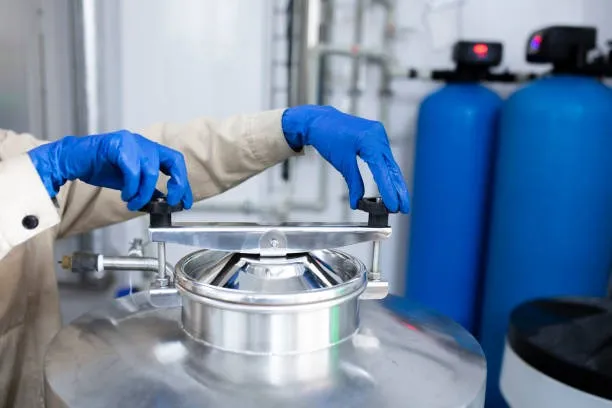
Boiler Repair in Elizabethtown, PA
Keeping your home warm and safe during Lancaster County winters means a reliable boiler and prompt repairs when problems arise. Whether you need emergency boiler repair in Elizabethtown, PA or routine troubleshooting and maintenance.
Why timely boiler repair matters in Elizabethtown, PA
Elizabethtown experiences cold, damp winters where a failed boiler can quickly make a home uncomfortable and risk frozen pipes. Many homes in the area use hydronic (hot water) or steam boiler systems—some original to older houses—so wear from age, hard water scale, and seasonal cycling are common contributors to breakdowns. Prompt repair restores comfort, prevents secondary damage (like water damage from leaks), and reduces energy waste from inefficient combustion or circulation problems.
Common boiler problems we diagnose in Elizabethtown
- No heat or insufficient heat: Burners not firing, failed circulator pumps, blocked passages, or thermostat and control failures.
- Leaks and low pressure: Corroded pipes, failed pressure relief valves, or a damaged heat exchanger or expansion tank.
- Ignition and pilot problems: Intermittent ignition, pilot outages, faulty gas valves, or electrical ignition module failure.
- High or low pressure readings: Faulty expansion tanks, pressure sensors, or leaking radiators/valves.
- Strange noises: Banging, kettling, or water hammer caused by trapped air, sediment buildup, or steam system misconfiguration.
- Poor hot water delivery on combo-boiler systems: Flow sensor, diverter valve, or heat exchanger issues.
- Control and electrical faults: Malfunctioning thermostats, relays, or control boards that prevent normal operation.
Diagnostic process: what happens on the first visit
- Safety assessment: Technicians perform a visual safety check for gas odors, visible leaks, and carbon monoxide (CO) risk before any detailed work.
- System history and symptoms: We document recent behavior (when it started, intermittent vs constant, any odd smells or sounds) to narrow likely causes.
- Visual and mechanical inspection: Burners, pilot/ignition assembly, heat exchanger, pumps, valves, and visible piping are examined for corrosion, soot, or mechanical failure.
- Pressure and combustion testing: We read system pressure, temperature differentials, and perform combustion analysis to check efficiency and CO levels where applicable.
- Diagnostic components check: Circulator motor operation, expansion tank pre-charge, relief valve function, and control board diagnostics.
- Estimate and repair plan: After identifying issues, technicians outline necessary repairs, parts required, and an estimated timeline for completion.
Typical repairs and parts included
Common repair items you can expect on boiler work orders:
- Ignition assemblies, pilot sensors, and gas valves (diagnose and replace if failing)
- Circulator pumps and bearings or motor replacement for hot water systems
- Expansion tanks (replacement or recharge) and pressure relief valves
- Zone valves, thermostats, and control board replacements
- Gaskets, seals, and flue/piping repair for leaks or corrosion
- Heat exchanger repair or replacement when cracked or irreparably corroded (this is a major repair and may affect decision to replace the boiler)
- System flushes to remove sediment and scale, and chemical treatments where water quality contributes to failures
Labor typically includes diagnostics, part replacement, system bleeding and balancing, safety checks, combustion tuning, and clean-up. Work scope is documented so you know exactly which parts and services are included in the repair.
Technician credentials and safety protocols
Qualified boiler technicians in this region hold industry-standard credentials and adhere to safety-first practices:
- NATE-certified technicians and EPA Section 608 certification for handling refrigerants where applicable; local state licensure for HVAC/heating contractors is followed.
- Structured safety checks for gas leaks, combustion efficiency, CO testing, and flue/venting integrity.
- Personal protective equipment and lockout/tagout procedures during electrical or gas work.
- Written service documentation and recommendations for follow-up maintenance or replacement when repairs are no longer cost-effective.
Typical turnaround times (what to expect)
- Emergency issues with gas odors, visible leaks, or no heat in extreme cold are prioritized; technicians commonly diagnose urgently and provide temporary or permanent repairs based on parts availability.
- Routine repairs (circulator pump, valves, control board, minor leak repair) are often completed within 1 to 3 business days from diagnosis if parts are standard.
- Major repairs that require special-order parts—such as OEM heat exchangers or specific control modules—can take longer; technicians will provide an estimated lead time and interim safety measures.
- Seasonal demand affects scheduling during the coldest months; early reporting of issues reduces risk of longer waits.
When to call for urgent service
Seek immediate professional attention if you encounter any of the following:
- Strong gas smell anywhere in the home.
- Carbon monoxide alarm activation or symptoms like headaches, dizziness, or nausea when the boiler runs.
- Rapidly dropping boiler pressure or a sizable, active leak.
- Complete loss of heat during freezing conditions.
- Loud, unusual banging or steam system backfires that could indicate dangerous pressure conditions.
- Repeated ignition failures with visible soot or flame instability.
Preventive steps to reduce emergency repairs
- Annual professional tune-ups before winter to test combustion, inspect flue and venting, check pressure and expansion tank condition, and flush sediment where needed.
- Monitor pressure and temperature regularly; note small changes early.
- Address minor leaks or odd sounds promptly—small issues often escalate in cold weather.
- Maintain proper water quality for closed-loop hydronic systems to limit scale and corrosion.


Enjoy flexible financing options that make upgrading or repairing your HVAC system easy and budget-friendly.










